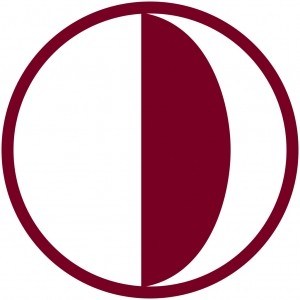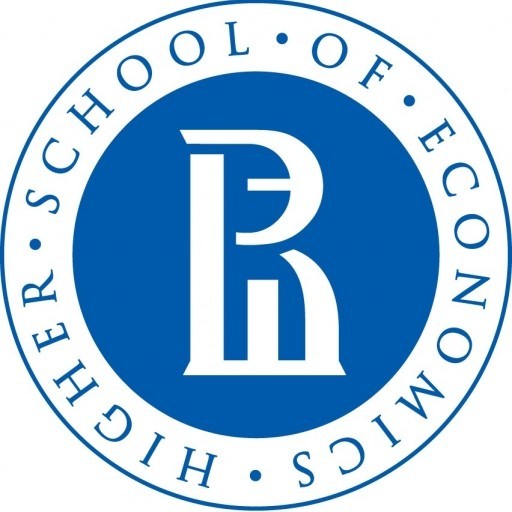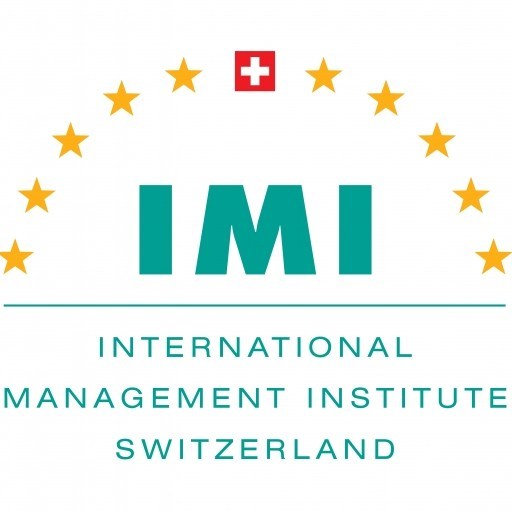In most of the countries that signed the Bologna Convention, a two-tiered system of study, which consists of Bachelor and Master degrees, was adopt...

In most of the countries that signed the Bologna Convention, a two-tiered system of study, which consists of Bachelor and Master degrees, was adopted. Bachelor degree is the first stage of higher education. Typically, the period studying for such a program is 4 years, although there are exceptions. For example, the UK, where it takes 3 years to obtain a bachelor degree. As a rule, the first two years students study a wide range of basic subjects, and the remaining time is devoted to the disciplines of the chosen specialization.
Before exploring the foreign universities rankings, it is very important to find out where it is best to get a bachelor degree in a chosen specialty abroad.
Marketing, management and other specialties in business are best taught in the US, UK and Switzerland.
Bachelor degree in Humanities and Tourism specialties abroad is one of the strongest in Switzerland, Greece and Spain.
A bachelor degree in design and fashion abroad is particularly appreciated if obtained in the universities of Italy and France.
A bachelor degree in technical or IT specialties abroad is best obtained in the UK or the USA.
Bachelor degree is often divided into these categories:
Bachelor of Arts
Bachelor of Science
Bachelor of Philosophy
Bachelor of Engineering
Bachelor of Law (LLB)
Bachelor of Medicine (BM)
Each of these types belongs to few specializations. For example, Bachelor of Science is given to chemists, biologists, etc. The names of these degrees can be different in some universities.
Why abroad?
If in Russia the bachelor's degree was officially introduced only in 1993, and a two-level system of higher education - bachelor's + master's degree - only in 2002, in foreign universities this system has existed for centuries.
Bachelor degree provides the student with the competencies necessary for the successful development of his career and also provides an opportunity to continue his education at the subsequent stages of the higher education.
Education abroad under the bachelor's program has many advantages, among the main ones: an international diploma that will allow you to apply for positions in international companies, as well as continue your education in any country in the world, the ability to learn the language of the country in which the education will take place, practice in international companies, which will allow you to acquire practical skills. And do not forget that studying at a foreign university, you have the opportunity to find friends from all over the world.
Bachelor degree in foreign universities gives our compatriots many advantages, such as: obtaining an international diploma which is recognized in all the countries of the world; experience of communication and living abroad; studying of several foreign languages at a high level; internship in leading global companies; the possibility of employment in any country and much more.
Choosing a country
According to the ICEF Professional Community for the year 2017, one of the most popular destinations for the foreign universities are the UK, USA, Canada, and Germany. However, other countries in Europe, North America, and even the Asian region, which in recent years has begun active expansion into the market of international education, do not remain without attention. So, how to make a choice?
Firstly, think of the language. Confident knowledge of the language in which the studying will be conducted will be a significant step towards higher education abroad. Secondly, from personal preferences and perspectives: living during the study should be comfortable, so look for a country with its "character". And given that most students remain in the country of education after graduating from university for at least a year or two, the question of "second motherland" is more than relevant.
Finally, it is important to find out whether the desired county has a string area in the specialty that you would like to take. It is important to take into account that not necessarily eminent university, which is widely heard, will be the best choice in the case of your specialization.
Admission to Bachelor Degree
First of all, secondary education certificates are almost unique in different countries. This means, that your certificate may not be valid in some countries due to the different educational system (for example, in Russia it takes 11 years to complete the school, in the USA 12 years and in the UK 13). Therefore, applicants usually apply for undergraduate and postgraduate programs (Foundation and others) in the country where they plan to study.
However, Canada and Austria do recognize foreign certificates, but here it is not necessary to talk about admission to top universities or popular specialties. In order to be guaranteed to become a student of one of the universities abroad, there are some necessary steps. There are several ways to do this:
Going to high school in the country where you plan to study later in the university. Having a "local" school certificate, you can file documents with the citizens of the country on a par with the citizens of the country. To pass the training on the preparatory program: Foundation, IB, Pathway, Studienkolleg or their analogues. Classes help to tighten academic knowledge, improve the level of the language, and also level differences in educational systems.
When choosing a preparatory program, it is worth considering that different universities have their own requirements for applicants: some are ready to consider students who have studied both Foundation and Pathway, others - prefer only to students in the IB program and A-levels.
The Foundation is an annual (from 6 to 12 months) university preparation program designed specifically for foreign students. It is less focused on the results of the final exams and more on the studies throughout the course, which makes it more convenient for students for whom English is not their mother tongue. The course is built on the same principle as studying at the university: students attend lectures, seminars, and individual lessons, in short, feel like real students.
Entrance examinations are typical for most of the universities in the world. But practically all admission commissions pay attention to the GPA, therefore it is also worth taking care of good grades.
The cost of education
However, some countries are free to accept students with foreign certificates, for example, Canada, Sweden, the Netherlands.
The size of the costs differs from country to country. It may cost up to 50,000$ per year (for example, in the US). However, there are a lot of affordable bachelor programs in Eastern European countries and Asia. Moreover, there is a chance to study for free if you get a grant, learn the national language (the Czech Republic), or have good school report and excellent recommendations from your teachers.
Here are the most popular destinations for foreign students:
The UK
For foreigners, the cost of studying at a BA in British universities starts at £ 8,000 ($ 11,920) and can go up to £ 36,600 ($ 58,201) for medical specialties. On average, foreign students pay about £ 11,987 ($ 17,870) per year at the universities.
Top 5 universities in the UK:
Ireland
Irish education costs less than English, but it does not lag behind it in quality. In the Middle Ages, Ireland was called "the land of saints and scientists", and today the level of education, rich history, and culture of the country attracts many students from all over the world!
In addition, for enrolling in Irish universities, foreign students do not need to go to the preparatory programs. This saves time and money for students who also have the opportunity to work during their studies.
The cost of studying in Ireland depends on the university and the curriculum. For example, a year in medicine costs about € 31,098-50,000 ($ 39,369-63,298), in engineering, science and technology - € 10,000-21,600 ($ 12,660-27,345), and in business, arts and humanities - € 10,000- 16,000 ($ 12,660-20,255).
Top 5 universities in Ireland:
Royal College of Surgeons
The Netherlands
Education in The Netherlands is popular among foreigners. Modern Dutch education is famous for its quality and accessibility. So, today in the universities of the Netherlands, more than 2,000 English language programs are offered, as well as a number of specialized courses for foreign students.
Every year, education in The Netherlands receives about 90,000 students. At the same time, 13 local universities are included in the world ranking of QS World University Rankings. One of the most sought-after universities in the country, the University of Amsterdam, takes 50th place in this ranking.
Depending on the university and specialization, a year of study in the Netherlands costs the international students around € 6,000-12,000 ($ 7,570-15,150). It is also worth noting that most local universities provide students with various scholarships, partially or fully covering the costs of the education.
Top 5 universities in the Netherlands:
Sweden
The first university was founded in Sweden in 1477, today there are more than 40 universities from the oldest to ultra-modern educational institutions. In addition, Sweden is a democratic state with a high standard of living, which is famous for its tolerance and multicultural atmosphere.
Traditionally, Swedish universities are popular for studying economics and design. In recent years, programs in the field of natural and technical sciences, business and art are also actively developing here. Swedish universities offer more t programs in English. In addition, if you know English, it is easy to get a job and explain in everyday life.
Unlike students from EU countries, for whom a higher education in Sweden is free, students from other countries must pay for tuition. Depending on the university, education in Sweden for undergraduate and graduate programs costs SEK80,000-180,000 ($ 12,000-27,000) per year. At the same time, postgraduate and doctoral studies at local universities remain free for all students.
Top 5 universities in Sweden:
KTH Royal Institute of Technology
Australia
Higher education in Australia (Colleges / Polytechnics, Bachelor's, Master's, MBA) attracts with its quality and prospects of employment. Moreover, it is a good opportunity if you want to move to the English-speaking country. Also, education in Australia is similar to the UK and the USA, but it is more exotic less expensive.
The cost of education varies from 9 000 AUD to 32 000.
Top 5 universities in Australia:
Canada
Higher education in Canada is very popular. Graduates of schools go to study in colleges and universities, university graduates choose programs of post-higher education. They are attracted by pretty low prices. The cost of the one year in the university starts from 10,000 CAD, approximately the same amount will cost the accommodation, food and transportation costs.
Top 5 universities in Canada:
Bachelor abroad for free
Foreigners from countries outside the EU can study free of charge in universities in Finland, Norway and the Czech Republic. This right is currently fixed in the laws of these countries. Also free of charge you can study at the undergraduate programs of most German universities.
Norway
In public universities in Norway, foreign students study free of charge. This applies to training in bachelor's, master's, doctoral studies. There has not been any talk about the introduction of paid education here.
The education is in Norwegian, with a number of programs in English. It is necessary to provide the relevant certificates of knowledge of the language.
Some state universities take tuition fees for a number of specialized programs - usually, it concerns the Master degree. In most cases, foreigners pay only a small payment of 40-80 euros per semester. In private universities in Norway, education is paid, but foreign students do not pay more than Norwegians.
Naturally, one must be prepared for the fact that the cost of living in Norway is higher than in many other European countries. It should also be said that it is not easy to nostrify the school certificate of the CIS country in Norway, as in principle in Finland. School education here means more years of study than, for example, in Russia. If a year is spent studying at a university in your country, it will be easier to resolve the issue of nostrification.
Top 5 universities in Norway:
Germany
In most German universities, bachelor's studies are free for all foreigners. Until 2005, all German universities were taught free of charge for bachelors. But after the Constitutional Court of Germany in 2005 lifted the ban on paid bachelor's studies, some state universities introduced a fee (usually about 500 euros per semester). Tuition in the Master degree and doctoral studies in Germany - paid
In addition to good knowledge of German (usually DSH or Test DaF certificates are required), in order to study in Germany, it is necessary to nostrify the certificate, which again is problematic for graduates of schools in Russia and other CIS countries. Those wishing to study at a German university usually study for two years at a university in their country and then go to Germany. If you already have a diploma, then you can easily study in Germany on the Bachelor's program.
Top 5 universities in Germany:
The Czech Republic
In public universities in the Czech Republic, the issue of the cost of education depends on the language of instruction. Studying in the Czech language in public universities in the Czech Republic is free of charge for all foreigners. The study in English or another foreign language costs from 1000 euros per semester
Russian-speaking students have a huge advantage over other foreign students. They are able to learn the Czech language at the level necessary for studying at a university, in a fairly short time. You can come to our training center for an annual course of the Czech language, after graduating, enroll in a Czech institution of higher learning and free of charge to study in Czech.
In addition, it is not so difficult to identify the school-leaving certificate of Russia or another CIS country in the Czech Republic as in other European countries. Since Czechs study in schools for 12 years, applicants from CIS countries have to pass additional exams.
Top 5 universities in the Czech Republic:












